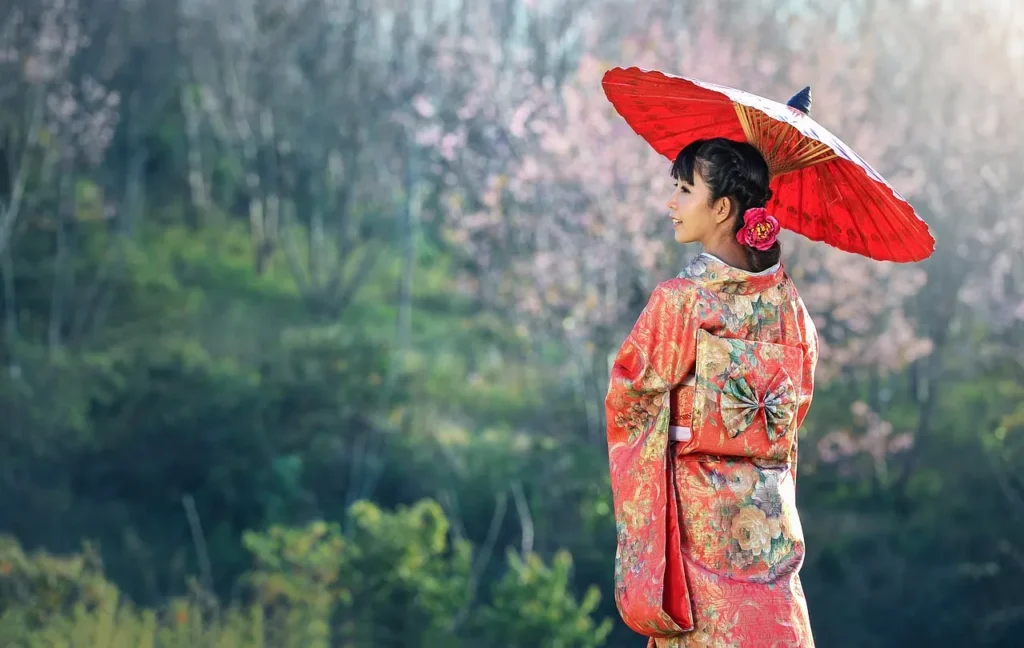Japanese Quotes: Wisdom, Inspiration, and Culture
Japanese culture is rich with wisdom passed down through centuries. One of its most remarkable expressions is found in Japanese quotes. These sayings reflect philosophy, life lessons, love, and resilience. They are often simple, yet profound. From traditional proverbs to modern reflections, Japanese quotes capture the heart of a culture that values harmony, mindfulness, and insight.
Whether you are learning Japanese, seeking inspiration, or fascinated by the culture, these quotes provide timeless guidance.
Why Japanese Quotes Are So Special

Japanese quotes often blend brevity with depth. Many are short, but they carry deep meaning. They emphasize mindfulness, respect, and living in the present moment.
For example, the famous proverb:
“Nanakorobi yaoki”
“Fall seven times, stand up eight.”
This quote embodies perseverance, resilience, and determination. It’s a principle many Japanese people apply in daily life.
Japanese quotes are also influenced by Zen Buddhism, Shinto beliefs, and centuries of literature. They encourage reflection, patience, and simplicity.
Categories of Japanese Quotes
Quotes from Japan cover many aspects of life. Here are some of the most popular categories:
1. Japanese Quotes About Life
Life is a central theme in Japanese wisdom. These quotes often encourage acceptance, mindfulness, and gratitude.
- “一期一会” (Ichi-go ichi-e) – “One time, one meeting.”
This proverb reminds us to cherish each moment and encounter, as it will never repeat exactly. - “心は美しく” (Kokoro wa utsukushiku) – “Keep your heart beautiful.”
Emphasizing inner beauty, kindness, and sincerity, it reflects the Japanese focus on living with grace.
Life quotes in Japan often highlight simplicity, balance, and appreciation for the present moment.
2. Japanese Quotes About Love
Japanese love quotes can be tender, poetic, and reflective.
- “愛は力” (Ai wa chikara) – “Love is strength.”
Shows how love can empower and support both individuals and relationships. - “思いは言葉よりも強い” (Omoi wa kotoba yori mo tsuyoi) – “Feelings are stronger than words.”
Reflects the subtlety and sincerity valued in Japanese expressions of affection.
Japanese love quotes often emphasize devotion, understanding, and quiet emotional connection.
3. Japanese Proverbs
Proverbs, or kotowaza, are short, memorable sayings. They often teach moral lessons or practical advice.
- “出る釘は打たれる” (Deru kugi wa utareru) – “The nail that sticks out gets hammered down.”
Highlights the value of humility and social harmony. - “猿も木から落ちる” (Saru mo ki kara ochiru) – “Even monkeys fall from trees.”
Reminds us that mistakes are natural, even for the skilled, teaching patience and resilience.
Kotowaza reflect Japan’s focus on learning from errors, social balance, and practical wisdom.
4. Japanese Quotes About Wisdom
Wisdom quotes in Japan often come from philosophers, writers, and historical figures. They encourage reflection and mindful living.
- “知るは知る” (Shiru wa shiru) – “To know is to know.”
A reminder that acknowledging what you know—and what you don’t—is the first step toward true understanding. - “塵も積もれば山となる” (Chiri mo tsumoreba yama to naru) – “Even dust amassed will become a mountain.”
Highlights the value of consistent effort and gradual accumulation of knowledge.
These sayings encourage mindful living, critical thinking, and long-term growth.
5. Japanese Quotes About Happiness
Happiness in Japanese thought is often about simplicity and contentment.
- “幸せはこの先にある” (Shiawase wa kono saki ni aru) – “Happiness lies ahead.”
Encourages hope and optimism for the future. - “一生懸命” (Issho kenmei) – “Do your best.”
Emphasizes the connection between effort, fulfillment, and personal satisfaction.
Happiness is seen as a byproduct of gratitude, perseverance, and mindful appreciation of life.
6. Japanese Quotes About Motivation and Success
Motivational quotes inspire resilience, dedication, and self-improvement.
- “頑張ってください” (Ganbatte kudasai) – “Do your best.”
A widely used encouragement that reinforces effort and persistence. - “継続は力なり” (Keizoku wa chikara nari) – “Continuity is power.”
Highlights the importance of steady effort and long-term dedication in achieving success.
These quotes inspire people to face challenges with courage and focus on improvement.
7. Japanese Quotes About Time and Life Lessons
Time is highly valued in Japanese culture. Quotes often remind us of its fleeting nature.
- “今を生きる” (Ima wo ikiru) – “Live in the present.”
Encourages focusing on today rather than worrying about the future. - “時間は全ての鍵” (Jikan wa subete no kagi) – “Time is the key to everything.”
Reminds us that patience and reflection are crucial in learning and growth.
These quotes emphasize appreciation for each moment and respect for life’s natural rhythms.
8. Japanese Quotes About Freedom and Individuality
Japanese culture values harmony, but individuality is also celebrated through thoughtful expression.
- “自分らしく生きる” (Jibun rashiku ikiru) – “Live true to yourself.”
Encourages self-awareness, courage, and authenticity. - “一人でも歩ける” (Hitori de mo arukeru) – “You can walk alone.”
Reflects independence and personal strength, inspiring confidence and self-reliance.
These quotes honor personal freedom while balancing the values of community and harmony.
9. Japanese Historical Quotes
Japanese history is rich with wisdom from samurai, poets, and philosophers. Historical quotes often emphasize honor, reflection, and human relationships.
- “今日の敵は、明日の友” (Kyō no teki wa, ashita no tomo) – “Today’s enemy is tomorrow’s friend.” – Miyamoto Musashi
Reflects the transient nature of relationships, teaching forgiveness and the possibility of reconciliation. - “己を知れ” (Onore o shire) – “Know yourself.” – Yamamoto Tsunetomo
Highlights self-awareness as essential for personal growth and wise decision-making. - “花より団子” (Hana yori dango) – “Dumplings over flowers.”
Suggests valuing practicality over appearances, a principle rooted in the samurai era.
10. Japanese Anime and Pop Culture Quotes
Modern Japanese media, including anime and manga, offers inspiring and relatable quotes for contemporary life.
- “努力は裏切らない” (Doryoku wa uragiranai) – “Effort never betrays you.” – Naruto
Emphasizes perseverance and the importance of personal dedication. - “未来を変えるのは、いつだって自分だ。” (Mirai o kaeru no wa, itsu datte jibun da.) – “The one who can change the future, is always yourself.” – One Piece
Inspires self-determination and personal responsibility in shaping your destiny. - “自分を信じて、仲間を信じて。” (Jibun o shinjite, nakama o shinjite.) – “Believe in yourself, believe in your friends.” – Fairy Tail
Highlights confidence, trust, and the power of community support.
11. Japanese Quotes About Nature and Simplicity
These quotes reflect Japan’s deep appreciation for natural beauty and the transient quality of life.
- “木漏れ日” (Komorebi) – “Sunlight filtering through leaves.”
Captures the serene beauty of nature, evoking peace and mindfulness. - “物の哀れ” (Mono no aware) – “The pathos of things.”
Expresses sensitivity to the impermanence of life, valuing fleeting moments and experiences. - “花鳥風月” (Kachōfūgetsu) – “Flower, bird, wind, moon.”
Encourages appreciation of nature and the changing seasons as part of life’s beauty.
12. Japanese Quotes About Strength and Resilience
These quotes teach perseverance, courage, and the ability to overcome challenges.
- “七転び八起き” (Nanakorobi yaoki) – “Fall down seven times, stand up eight.”
A powerful reminder of resilience and the strength of the human spirit. - “雨降って地固まる” (Ame futte ji katamaru) – “After the rain, the ground hardens.”
Suggests that adversity strengthens character and builds resilience. - “石の上にも三年” (Ishi no ue ni mo sannen) – “Three years on a stone.”
Emphasizes patience and persistence, encouraging steady effort over time.
13. Japanese Quotes About Humility and Wisdom
Humility and wisdom are central values in Japanese culture. These sayings guide behavior and perspective.
- “実るほど頭を垂れる稲穂かな” (Minoru hodo koube wo tareru inaho kana) – “The boughs that bear the most hang the lowest.”
Highlights that truly accomplished individuals are often the most humble. - “知恵は石の上にも三年” (Chie wa ishi no ue ni mo sannen) – “Wisdom comes even to a stone after three years.”
Reflects the value of patience and continuous learning. - “虎穴に入らずんば虎子を得ず” (Koketsu ni irazunba koji o ezu) – “Without entering the tiger’s den, you cannot get the tiger’s cub.”
Encourages courage and risk-taking to achieve meaningful rewards.
14. Japanese Quotes About Love and Relationships
Japanese expressions of love often emphasize subtlety, connection, and emotional depth.
- “愛は盲目” (Ai wa mekimeki) – “Love is blind.”
Suggests that love accepts flaws and imperfections, emphasizing emotional connection. - “友達以上恋人未満” (Tomodachi ijō koibito miman) – “More than friends, less than lovers.”
Explores the nuances and evolving nature of relationships. - “愛は力” (Ai wa chikara) – “Love is strength.”
Shows how love empowers both individuals and bonds.
15. Japanese Quotes About Mindfulness and Spirituality
Japanese culture deeply values mindfulness, presence, and spiritual reflection. These quotes encourage living intentionally and appreciating the present moment.
- “一期一会” (Ichi-go ichi-e) – “One encounter, one chance.”
Reminds us to treasure every meeting and experience, as each moment is unique and fleeting. - “今を生きる” (Ima o ikiru) – “Live in the present.”
Encourages focusing on the here and now rather than worrying about the past or future. - “心を清く保つ” (Kokoro o kiyoku tamotsu) – “Keep your heart pure.”
Emphasizes sincerity, kindness, and mindfulness in daily actions.
16. Japanese Quotes About Daily Life and Practical Wisdom
Practical wisdom and guidance for everyday life are abundant in Japanese sayings. These quotes teach balance, humility, and insight into ordinary experiences.
- “花より団子” (Hana yori dango) – “Dumplings over flowers.”
Suggests valuing practicality and substance over mere appearances. - “猿も木から落ちる” (Saru mo ki kara ochiru) – “Even monkeys fall from trees.”
A reminder that mistakes are natural and learning is continuous. - “継続は力なり” (Keizoku wa chikara nari) – “Continuity is power.”
Highlights the importance of steady effort and consistency in achieving success. - “明日は明日の風が吹く” (Ashita wa ashita no kaze ga fuku) – “Tomorrow’s wind will blow tomorrow.”
Encourages letting go of worry and trusting that each day brings new solutions.
17. Japanese Motivational Quotes
Japanese motivational quotes inspire perseverance, self-discipline, and personal growth. They are often used to encourage effort and resilience in daily life.
- “努力は裏切らない” (Doryoku wa uragiranai) – “Effort never betrays you.”
Encourages hard work and persistence, reinforcing the idea that consistent effort pays off. - “継続は力なり” (Keizoku wa chikara nari) – “Continuity is power.”
Highlights the importance of steady effort and consistency in achieving long-term goals. - “七転び八起き” (Nanakorobi yaoki) – “Fall seven times, stand up eight.”
A classic reminder that resilience and perseverance are essential to overcoming challenges.
18. Japanese Love Sayings with Translation
These quotes focus on emotional depth, subtlety, and the enduring nature of love in Japanese culture.
- “愛は力” (Ai wa chikara) – “Love is strength.”
Shows how love can empower individuals and strengthen relationships. - “愛は盲目” (Ai wa mekimeki) – “Love is blind.”
Suggests that true love sees beyond imperfections and accepts flaws. - “友達以上恋人未満” (Tomodachi ijō koibito miman) – “More than friends, less than lovers.”
Explores the complexity and nuance of evolving relationships.
19. Proverbs for Daily Life in Japan
Japanese proverbs, or kotowaza, offer practical guidance and reflect wisdom for ordinary life. They teach humility, patience, and mindfulness in everyday situations.
- “花より団子” (Hana yori dango) – “Dumplings over flowers.”
Advises valuing practicality and substance over mere appearances. - “猿も木から落ちる” (Saru mo ki kara ochiru) – “Even monkeys fall from trees.”
Reminds us that mistakes are natural, and learning is continuous. - “明日は明日の風が吹く” (Ashita wa ashita no kaze ga fuku) – “Tomorrow’s wind will blow tomorrow.”
Encourages letting go of worry and trusting that new opportunities will come. - “石の上にも三年” (Ishi no ue ni mo sannen) – “Three years on a stone.”
Emphasizes patience and persistence, showing that endurance and effort bring results over time.
Miscellaneous Famous Japanese Quotes
Some Japanese quotes do not fit neatly into one category, but they offer insight and inspiration:
- “Nana korobi yaoki” – “Fall seven times, stand up eight.”
- “Kawaii mono wa subete subarashii” – “Everything cute is wonderful.”
- “Ichiban daiji na mono wa me ni wa mienai” – “The most important things are invisible to the eye.”
They reflect culture, humor, and philosophy in concise, memorable phrases.
Why You Should Read and Share Japanese Quotes
- Inspiration and Motivation: Quotes provide daily encouragement.
- Cultural Insight: They give a glimpse into Japanese thought and values.
- Language Learning: Reading quotes helps with vocabulary and grammar.
- Social Sharing: Elegant quotes enhance posts, speeches, and personal writing.
How to Use Japanese Quotes in Your Life
- Daily Affirmations: Start your day with a meaningful quote.
- Decor: Frame your favorite quotes in your home or workspace.
- Writing: Use quotes to inspire letters, journals, or speeches.
- Conversation: Quotes can spark thoughtful discussions about life and philosophy.
Conclusion
Japanese quotes are more than just words. They are reflections of culture, philosophy, and human experience. They inspire, teach, and guide with elegance and simplicity. Whether you are learning the language, seeking motivation, or exploring Japanese culture, these quotes offer timeless wisdom for every aspect of life.
For more Japanese quotes and inspiration, explore resources dedicated to wisdom and sayings from around the world.
Frequently Asked Questions (FAQ) — Japanese Quotes
What are some famous Japanese quotes about life?
Some well-known Japanese life quotes include “Ichi-go ichi-e” (One time, one meeting) and “Kokoro wa utsukushiku” (Keep your heart beautiful). They encourage mindfulness, gratitude, and living fully in the present moment.
What are popular Japanese quotes about love?
Japanese love quotes often emphasize sincerity and emotional connection, such as “Ai wa chikara” (Love is strength) and “Omoi wa kotoba yori mo tsuyoi” (Feelings are stronger than words).
Which Japanese proverbs teach wisdom?
Popular proverbs include “Deru kugi wa utareru” (The nail that sticks out gets hammered down) and “Saru mo ki kara ochiru” (Even monkeys fall from trees). These sayings teach humility, resilience, and reflection.
How do Japanese quotes inspire happiness?
Sayings like “Shiawase wa kono saki ni aru” (Happiness lies ahead) and “Issho kenmei” (Do your best) emphasize hope, perseverance, and gratitude for life’s moments.
What Japanese quotes motivate success?
Motivational sayings include “Ganbatte kudasai” (Do your best) and “Keizoku wa chikara nari” (Continuity is power). They inspire persistence and self-improvement.
Are there Japanese quotes about time and life lessons?
Yes. Quotes like “Ima wo ikiru” (Live in the present) and “Jikan wa subete no kagi” (Time is the key to everything) highlight mindfulness and the value of patience.
Can Japanese quotes help me learn the language?
Absolutely! Reading quotes expands vocabulary, teaches idioms, and provides cultural context, making language learning more engaging and effective.
What are short and powerful Japanese quotes?
Some concise, memorable sayings include “Nanakorobi yaoki” (Fall seven times, stand up eight), “Ichi-go ichi-e” (One time, one meeting), and “Ganbatte kudasai” (Do your best).
Which Japanese quotes celebrate individuality and freedom?
Sayings like “Jibun rashiku ikiru” (Live true to yourself) and “Hitori de mo arukeru” (You can walk alone) emphasize self-awareness, courage, and authenticity.
Where can I find more Japanese quotes online?
You can explore dedicated quote websites, language blogs, and Japanese literature collections. For a curated collection, visit QuoteLa.net.
About the Author – Ana Milojevik
Ana Milojevik is a passionate writer, cultural explorer, and language enthusiast with a deep appreciation for Japanese literature, philosophy, and proverbs. She specializes in creating content that blends timeless wisdom, practical insights, and inspiring ideas. Ana enjoys helping readers discover the beauty of language, the richness of culture, and the power of words to inspire daily life. When she’s not writing, Ana loves traveling, exploring different cuisines, and collecting meaningful quotes from around the world.
Author’s Opinion
In my view, Japanese quotes stand out from those of other cultures because of their unique blend of simplicity, depth, and mindfulness. Unlike many quotes that may focus on grand statements or overt motivation, Japanese sayings often convey profound meaning in just a few words. They reflect centuries of philosophy, literature, and cultural values, emphasizing patience, humility, and living in the present moment.
What fascinates me most is how these quotes capture life’s complexities with elegance and restraint. A short proverb can teach perseverance, inspire love, or highlight the fleeting nature of time—all without ever feeling forced or overly dramatic. This subtlety makes Japanese quotes both memorable and universally relatable, even across different cultures and languages.
For me, exploring Japanese quotes isn’t just about reading wisdom; it’s about experiencing a perspective on life that encourages reflection, mindfulness, and a deeper connection to the world around us. They remind us that true insight often comes not from saying more, but from saying just enough.
For anyone seeking more inspiring quotes, visit QuoteLa.net for a curated collection of timeless wisdom and cultural insights.




